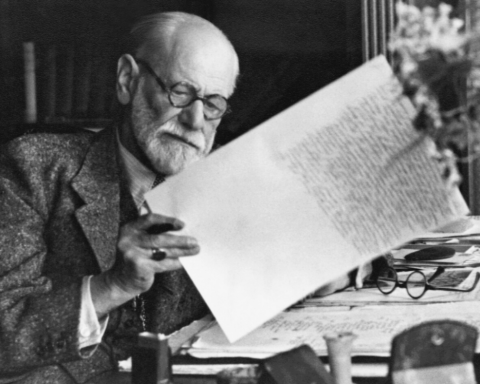At midNight, the world can seem like a darker place. Under the cover of darkness, negative thoughts can seep into your mind, and while staring at the ceiling, you may start craving “guilty pleasures” like a cigarette or a carb-heavy meal.
There is considerable evidence suggesting that the human mind functions differently during late-night hours. After midnight, negative emotions draw more attention than positive ones, dangerous thoughts become more appealing, and inhibitions diminish.
Researchers believe that the body’s circadian rhythm plays a significant role in these critical shifts. A 2022 study summarized how brain systems operate differently in the darkness of night, highlighting this perspective.
This concept, known as the “Mind After Midnight” hypothesis, proposes that the human body and mind follow a natural 24-hour activity cycle that influences our emotions and behaviors. In essence, human beings are inclined to feel and act in certain ways at specific times of the day. For example, during daytime hours, molecular levels and brain activity align with wakefulness, but at night, sleep becomes the default state.
From an evolutionary perspective, this makes sense. Humans have historically been more effective at hunting and gathering during the day, while nighttime was a more suitable time for rest. Yet, there was a greater risk of falling prey at night, which may have led to heightened attention to negative stimuli to cope with these dangers. This increased focus, which may have once helped us react swiftly to unseen threats, can now alter the reward/motivation system, making risky behaviors more appealing.
Adding sleep deprivation into the mix can further exacerbate this state of consciousness, making it even more problematic.
“There is strong evidence that millions of people are awake at midnight, and their Brains are not functioning as well as they do during daytime hours,” said neuroscientist Elizabeth Klerman from Harvard University in 2022, when the study was published.
“My request is for more research because this condition affects their health and safety, as well as the health and safety of others.”
The authors of the hypothesis illustrate this with two examples. The first is a heroin user who can control their cravings during the day but succumbs to them at night. The second is a college student struggling with insomnia, who experiences increasing feelings of despair, loneliness, and hopelessness as sleepless nights accumulate.
Both scenarios can ultimately lead to fatal outcomes. Suicide and self-harm are significantly more common during the night. In fact, some studies report that the risk of suicide between midnight and 6:00 AM is three times higher than during any other time of the day.
A 2020 study suggested that staying awake at night is a risk factor for suicide, potentially due to a “mismatch in circadian rhythms.”
“Suicide emerges as a solution, unthinkable before, as a means to escape loneliness and pain. Before the cost of suicide is considered, the student is prepared to act, at a time when no one can stop them,” the authors of the “Mind After Midnight” hypothesis noted.
People are also more likely to engage in illegal or dangerous activities during nighttime. A 2020 study conducted at a supervised drug consumption facility in Brazil found that the risk of opioid overdose was 4.7 times higher at night.
Some of these behaviors may be explained by sleep deprivation or the cover of darkness, but neurological changes that occur during the night are likely also at play.
Researchers like Klerman and her colleagues emphasize the need to explore these factors further, as more knowledge is needed to protect those at the highest risk who stay awake during the night.
To date, the authors point out, no study has examined how sleep deprivation and circadian timing affect a person’s reward processing. As a result, we know very little about how people, such as shift workers, pilots, or doctors, cope with irregular sleep patterns.
Surprisingly, there is still much we don’t know about how the human brain functions during the six hours after midnight. Whether asleep or awake, The Mind After Midnight remains a mystery.
The study was published in Frontiers in Network Psychology.
If this story has raised concerns for you or if you feel the need to talk to someone, please reach out to one of the 24-hour crisis helplines available in your country and seek help.
An earlier version of this article was published in August 2022.






